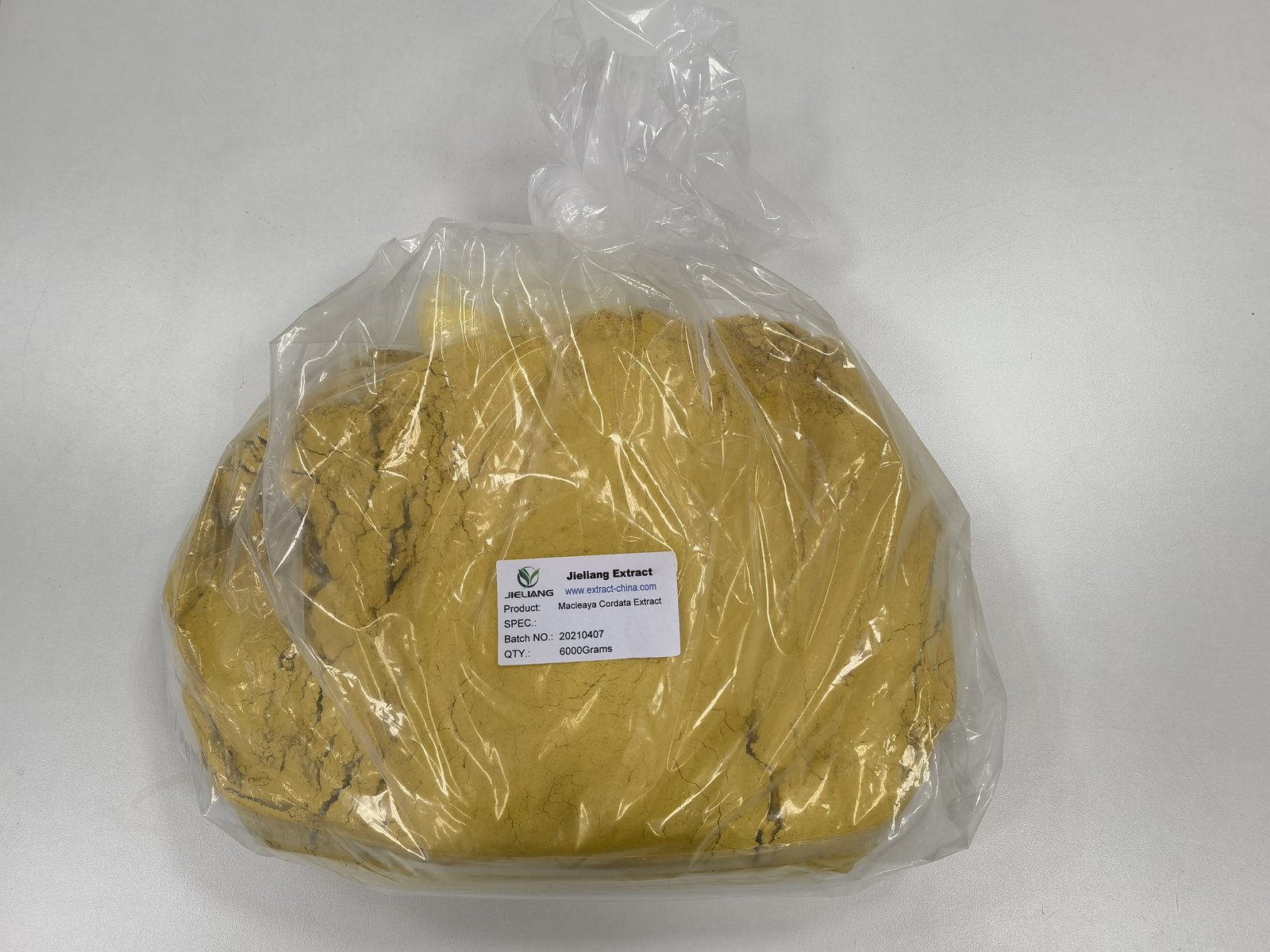The Berberine Sulfate (Berberine Sulphate, CAS NO. 6190-33-6, Molecular Formula:C40H42N2O15S) a product through replacement from Hydrocloride to Sulfate get The Berberine Sulfate (Berberine Sulphate, CAS NO. 6190-33-6, Molecular Formula:C40H42N2O15S).
- 1. Introduction
- 2. Health Benefits
- 3. Mechanism of Action
- 4. Product Formulation and Dosage
- 5. Safety and Side Effects
- 6. Scientific Studies
- 7. Usage Instructions
- 8. Precautions
- 9. Frequently Asked Questions (FAQs)
- 10. Conclusion
1. Introduction
Berberine Sulfate is a bioactive compound derived from several plants, including Goldenseal and Oregon Grape. It has been used for centuries in traditional medicine for its antibacterial, anti-inflammatory, and antioxidant properties. In modern health science, Berberine Sulfate has gained attention for its potential to improve metabolic function, support cardiovascular health, and even aid in cancer prevention. Studies have shown that Berberine Sulfate can help regulate blood sugar levels, lower cholesterol, and promote fat loss.
2. Health Benefits
2.1 Blood Sugar Regulation
Berberine Sulfate has shown promising effects on reducing blood sugar levels. It helps in improving insulin sensitivity and reduces glucose production in the liver. This makes it a valuable supplement for individuals with type 2 diabetes or prediabetes. Research has indicated that Berberine Sulfate can be as effective as certain pharmaceutical drugs in lowering blood sugar levels.
2.2 Cholesterol Management
Another significant benefit of Berberine Sulfate is its impact on cholesterol levels. It has been found to lower both LDL ("bad") cholesterol and triglycerides, while raising HDL ("good") cholesterol. This contributes to overall heart health and reduces the risk of cardiovascular diseases.
2.3 Weight Loss Support
Studies suggest that Berberine Sulfate can aid in weight management by enhancing fat metabolism and reducing fat accumulation. It activates AMP-activated protein kinase (AMPK), a key enzyme in energy regulation, which promotes fat burning and increases energy expenditure.
3. Mechanism of Action
Berberine Sulfate works through multiple mechanisms at the cellular level. It activates AMPK, which plays a critical role in regulating glucose and lipid metabolism. Additionally, it may help to decrease inflammation and oxidative stress, both of which are contributors to many chronic diseases such as diabetes and heart disease. Its action on the gut microbiome is also believed to be a key factor in its health benefits.
4. Product Formulation and Dosage
Berberine Sulfate is commonly available in capsule and tablet forms, with each serving typically containing 500 mg of the active ingredient. The recommended dosage is generally between 1,500 mg and 2,000 mg per day, divided into two to three doses. However, it is important to consult a healthcare professional before starting supplementation, especially for individuals with pre-existing medical conditions.
5. Safety and Side Effects
Berberine Sulfate is generally considered safe for most people when used appropriately. However, some individuals may experience mild side effects such as digestive upset, constipation, or diarrhea. It is also important to note that Berberine Sulfate can interact with certain medications, including those for diabetes, blood pressure, and cholesterol. Always consult with a healthcare provider before use, especially if you are on medication.
6. Scientific Studies
Numerous studies have been conducted to evaluate the effectiveness of Berberine Sulfate. For instance, a clinical trial published in the "Journal of Clinical Endocrinology & Metabolism" found that Berberine significantly reduced blood sugar levels in individuals with type 2 diabetes. Other studies have supported its role in lowering cholesterol and enhancing weight loss efforts.
7. Usage Instructions
Berberine Sulfate should be taken with food to minimize the chances of gastrointestinal upset. The dosage can vary depending on the individual’s needs and the advice of a healthcare provider. It is recommended to start with a lower dose to assess tolerance and gradually increase it over time.
8. Precautions
Berberine Sulfate should not be taken by pregnant or breastfeeding women unless advised by a healthcare professional. It is also contraindicated for individuals with severe liver or kidney conditions. People taking medications for blood sugar, blood pressure, or cholesterol should be cautious and consult a healthcare provider before starting Berberine supplementation.
9. Frequently Asked Questions (FAQs)
- Q1: Can Berberine Sulfate help lower blood sugar in people with diabetes?
Yes, Berberine Sulfate has been shown to help regulate blood sugar levels and improve insulin sensitivity in individuals with type 2 diabetes. - Q2: Are there any side effects associated with Berberine Sulfate?
The most common side effects include digestive issues such as diarrhea, constipation, or stomach cramps. These are usually mild and temporary. - Q3: How should I take Berberine Sulfate?
It is typically taken in 500 mg doses, two to three times a day with meals. Consult your healthcare provider for personalized dosage recommendations. - Q4: Is Berberine Sulfate safe for long-term use?
While Berberine Sulfate is generally safe for short-term use, it is important to consult with a healthcare provider for long-term use to avoid any potential interactions with medications. - Q5: Can Berberine Sulfate be used for weight loss?
Yes, Berberine Sulfate can support weight loss by increasing fat metabolism and energy expenditure through the activation of AMPK.
10. Conclusion
Berberine Sulfate is a powerful natural compound that offers a variety of health benefits, particularly for those managing blood sugar levels, cholesterol, and weight. With proper usage and guidance from a healthcare professional, it can be an excellent addition to a holistic wellness routine. As with any supplement, it is important to understand both the benefits and potential side effects before starting supplementation.







